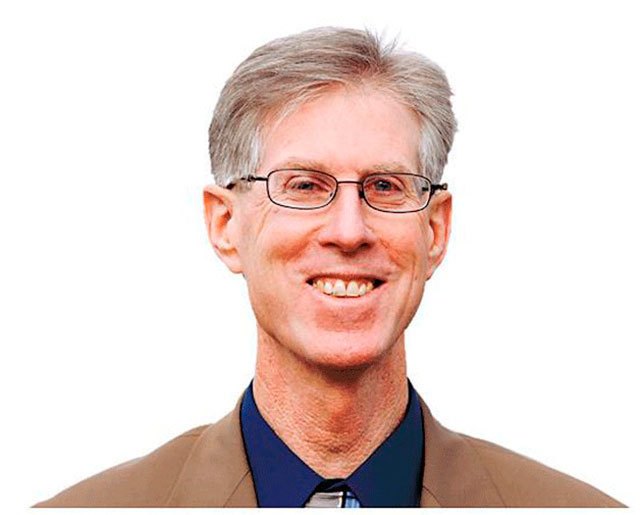OLYMPIA — If by some chance Alexander Hamilton could transport through time to the state Capitol Monday, it’d be to bear witness to the political disobedience of Bret Chiafalo of Everett.
Chiafalo is one of Washington’s 12 electors, and the nation’s 538 members of the Electoral College, who on Monday will be choosing the next United States president. The 38-year-old Democrat pledged months ago to cast his vote for his party’s nominee should they win in this state, which means he should vote for Hillary Clinton.
Chiafalo says he is not planning to keep his pledge when electors gather at noon, an act of defiance that could cost him money but he hopes contributes to keeping Republican president-elect Donald Trump out of the White House.
He and at least one other Washington elector, Levi Guerra of Eastern Washington, may vote for a Republican who they consider a consensus alternative to Trump. Under state law, such a political jaywalking violation would subject each of them to a potential $1,000 fine as a “faithless elector”, though they could possibly be let off with a warning.
Chiafalo contends the law isn’t legal and says he intends to carry out his moral and constitutional responsibility as an elector to select a person fit to be president. Trump, in his view and that of other Democratic electors across the country, is unfit to hold the position.
Chiafalo is a founder and voice of a campaign to derail Trump’s presidency by getting electors of both parties to forget about their pledges from months ago and vote for a qualified Republican to lead today.
Here’s where Hamilton fits in.
The U.S. Constitution laid out ground rules for the Electoral College. Hamilton, a soldier, a lawyer and a nationalist, took it upon himself to explain its importance in “The Mode of Electing the President”, more commonly referred to as Federalist Paper No. 68.
Writing in 1788, when only a handful of states had joined the union and a year before the presidency of George Washington began, Hamilton argued the Electoral College provides a defense against an unqualified individual conning their way into office on a wave of popularity. Electors should assess and investigate candidates’ qualifications to insure against the election of an executive burdened by conflicts of interest or under the influence of a foreign power, he also wrote.
While Chiafolo said he’s not a fan of the Electoral College, it is the “fail safe” measure the republic needs now more than ever today.
“This is the moment Hamilton and (James) Madison warned us about,” he says in a video posted on the website of Hamilton Electors, the group Chiafalo helped launch.
This effort is, to put it bluntly, a longshot.
Trump captured 306 Electoral College votes, 36 more than the minimum 270 needed to win. That means no matter how Chiafalo and Guerra vote, Trump could only be denied victory if, in those states he won, at least 37 Republican electors support a different GOP candidate.
Then the Republican-controlled U.S. House of Representatives would pick the president. It certainly means the next president will be Republican, just maybe not Trump.
“Thirty seven patriots can save this country,” Chiafalo says in the video.
Political reporter Jerry Cornfield’s blog, The Petri Dish, is at www.heraldnet.com. Contact him at 360-352-8623; jcornfield@heraldnet.com and on Twitter at @dospueblos.



